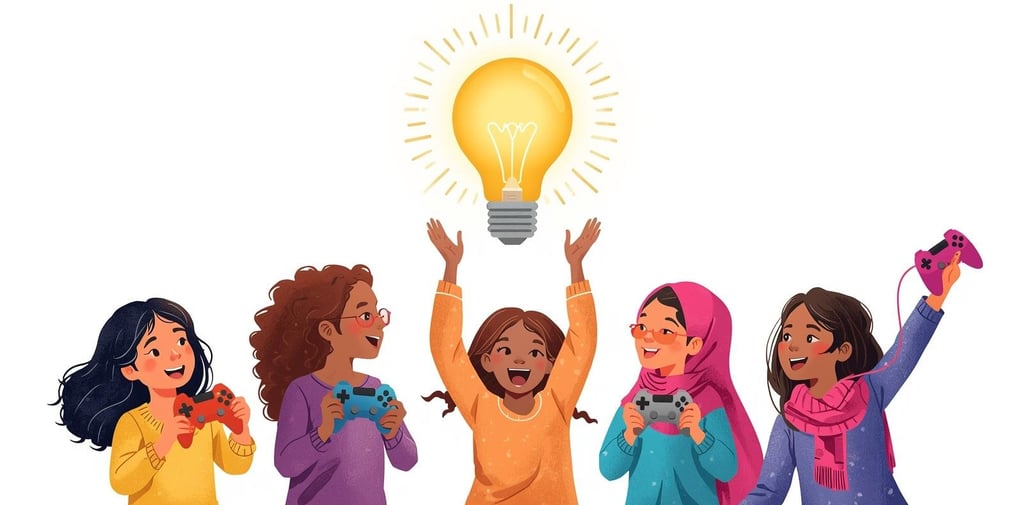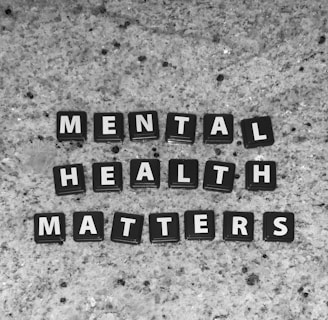The Impact of Positive Digital Content on Mental Health
Digital Positive Mindset
Gajanan L. Bhonde
7/28/20259 min read


Introduction to Positive Digital Content
Positive digital content refers to a diverse array of uplifting and motivational materials available through various online platforms. With the rise of the digital age, many individuals have turned to the internet for inspiration, connection, and support. This type of content encompasses a wide range of formats, including social media posts, videos, blogs, and podcasts, all designed to foster a sense of community and uplift users.
Social media platforms have become a popular channel for sharing positive digital content. Users frequently post inspiring quotes, uplifting stories, and personal anecdotes that encourage resilience and positivity. These brief yet powerful messages can prompt engagement, allowing individuals to connect with like-minded people and create supportive online communities. Moreover, platforms like Instagram and TikTok have seen the rise of influencers who focus on promoting mental health awareness and positivity, contributing significantly to users' well-being.
In addition to social media, blogs provide a more in-depth exploration of themes related to positivity and motivation. Many writers focus on topics such as mindfulness, gratitude practices, and positive affirmations, delivering comprehensive content that resonates with readers seeking personal growth. These articles often include actionable tips and real-life examples that readers can incorporate into their daily lives, enhancing their overall outlook.
Podcasts have also emerged as a vital medium for disseminating positive digital content. By featuring interviews with inspirational figures and mental health professionals, these audio programs allow listeners to engage with uplifting narratives and gain insights into their own mental wellness journeys. The convenience of listening on-the-go further encourages audiences to immerse themselves in constructive discussions that promote self-improvement.
Ultimately, positive digital content serves as a beacon of hope and encouragement in an increasingly challenging world. By harnessing the potential of the digital landscape, individuals can cultivate a mindset that embraces positivity, support, and community.
The Connection Between Digital Consumption and Mental Health
In an increasingly digital age, the psychological and emotional effects of consuming online content have garnered significant attention from researchers and mental health professionals alike. The consumption of digital media profoundly impacts our mental health, particularly the type and quality of content we engage with. Studies have demonstrated that positive digital content can lead to enhanced feelings of happiness, reduced stress levels, and improved overall well-being. This highlights the potential of curated media experiences to serve as a beneficial tool for mental resilience.
Research indicates a strong link between the nature of digital content and its effects on mood and emotional states. For instance, engaging with uplifting videos, motivational articles, or supportive online communities can foster a sense of connection and optimism. Conversely, exposure to negative or distressing content has been associated with increased anxiety and depressive symptoms. Therefore, the deliberate selection of content that uplifts and inspires is critical for promoting positive mental health outcomes.
Intentional engagement with positive digital content can significantly mitigate adverse effects and promote resilience in individuals facing mental health challenges. Individuals are encouraged to filter their digital environments by choosing sources that prioritize constructive narratives, celebrate achievements, and foster community support. This intentionality not only cultivates positive emotional experiences but also serves as a protective factor against the detrimental impacts of pervasive negativity often encountered online.
Moreover, the digital landscape offers numerous resources, such as mental health apps, supportive online forums, and educational platforms that can enhance one’s understanding of mental health. By embracing these positive digital tools, individuals can create a more conducive environment for their psychological well-being, reaffirming the critical role that informed content consumption plays in shaping mental health outcomes.
Research Insights on Positive Content and Well-being
Recent studies have illuminated the profound impact that positive digital content can have on mental health. According to research published in the Journal of Positive Psychology, individuals who regularly engage with uplifting online materials, such as motivational quotes, uplifting videos, or positive news stories, report significant improvements in their emotional well-being. These findings suggest that exposure to positive digital content has the potential to enhance mood and foster resilience against stress and anxiety.
Another compelling study conducted by the University of Pennsylvania examined the effects of social media interactions on users' psychological states. The research indicated that individuals who are surrounded by supportive and encouraging messages tend to experience enhanced self-esteem and decreased feelings of isolation. Furthermore, the presence of positive content in their feeds contributed to an overall sense of community and belonging among participants, which is crucial for mental health.
Moreover, a comprehensive review of the literature published in the American Journal of Psychiatry highlighted that positive affirmations and inspirational narratives can directly influence cognitive processes. For instance, such content can lead to a shift in perspective, where individuals view challenges as opportunities for growth rather than insurmountable obstacles. This cognitive restructuring is essential for building mental resilience and can ultimately transform how one manages stress and adversity.
In the realm of youth mental health, an innovative study by the Child Trends organization revealed that adolescents exposed to positive self-identity content—such as affirmative representations of diverse identities—exhibited lower levels of depression and anxiety. This finding underscores the importance of tailoring positive digital content to resonate with specific demographics, ensuring that all individuals can see themselves reflected in encouraging narratives.
Collectively, these research insights reinforce the notion that positive digital content can play a significant role in enhancing well-being. By regularly consuming and sharing encouraging messages, individuals can cultivate a healthier mindset and improve their overall mental health outcomes.
Personal Stories: Transformative Impact of Positive Posts
In recent years, the prevalence of positive digital content has become increasingly noticeable, especially on social media platforms. Many individuals have shared their transformative experiences, illustrating how uplifting messages can lead to significant changes in mental health. For instance, Jessica, a college student, experienced overwhelming anxiety and self-doubt during her studies. After stumbling upon a community dedicated to spreading positivity, she began engaging with regularly posted affirmations and inspirational quotes. Over time, she noticed a marked improvement in her self-esteem and outlook on life, attributing her transformation to the positive digital environment she had become a part of.
Similarly, John, a middle-aged professional, struggled with bouts of depression, exacerbated by the negativity often found in digital interactions. He began to curate his social media feed with content focused on gratitude, kindness, and personal growth. The change in his digital landscape not only improved his mood but also promoted healthier coping mechanisms. John often shares his story about how these positive posts ignited a renewed sense of hope and purpose in his life, highlighting the impact that digital positivity can have on mental well-being.
Moreover, technology-savvy teens like Mia have also reported significant shifts in their mental health due to positive digital content. After participating in various online challenges aimed at promoting kindness and mental health awareness, she felt empowered and supported. This engagement not only strengthened her resilience against peer pressure but also fostered bonds with like-minded individuals, proving that supportive online communities can mitigate feelings of isolation.
These personal accounts emphasize that positive digital content plays a crucial role in mental health improvement. As individuals take part in uplifting conversations online, they often find solace and encouragement, showcasing the immense power of positivity in a digital age. These stories reflect a broader trend where the consumption of positive messages can lead to meaningful changes, ultimately enhancing overall mental well-being.
Creating a Positive Digital Footprint
In an era where digital content permeates nearly every aspect of our lives, it is vital to maintain a positive digital footprint that enhances mental well-being. The first step in curating a beneficial online experience is to follow uplifting accounts and brands. Seek out content that inspires you, whether it be motivational quotes, mental health tips, or stories of resilience. These sources can create a more optimistic and affirming narrative in your feed, which can have a significant impact on your mood and overall mental health.
Engaging with positive online communities is equally essential. Joining groups or forums that focus on constructive discussions allows for the sharing of experiences and support among like-minded individuals. These interactions not only reinforce a sense of belonging but also contribute to an enriched understanding of mental health issues and coping mechanisms. When individuals contribute to healthy discussions, they are helping create an environment where positivity can flourish, thus benefitting all members involved.
Equally important is the act of unfollowing negative content. Regularly assess the accounts you follow and the influence they have on your mental state. If certain content leaves you feeling anxious, angry, or inadequate, it may be time to disengage. By consciously removing negative influences, you make space for more uplifting interactions, significantly improving your digital experience.
Moreover, participating in constructive online behavior goes beyond merely consuming content. Individuals can contribute by sharing their own stories of hope, advocating for mental health awareness, and supporting causes that promote well-being. Ultimately, creating a positive digital footprint requires intention and effort, but it leads to a healthier and more positive engagement with the digital world. As every person’s experience is unique, taking the time to customize your digital interactions can greatly bolster your mental health.
The Role of Social Media Platforms in Promoting Positivity
In the digital age, social media platforms have become crucial tools for communication and information sharing. Many of these platforms recognize their potential impact on users’ mental health and are taking proactive measures to foster positivity. A variety of unique features have been developed to promote uplifting content and encourage supportive online communities.
One significant initiative is the introduction of wellness tools. Platforms like Facebook and Instagram have implemented features that enable users to monitor their mental health. For instance, Instagram offers resources and links to mental health organizations when users search for terms related to self-harm or distress. By providing access to reliable information, these platforms aim to create a safer environment for individuals who may be struggling.
Support groups have emerged as another significant aspect of promoting positivity across social media. Many platforms now allow users to create or join groups focused on various challenges, including mental health issues, anxiety, or body positivity. These groups foster a sense of community where individuals can share experiences, provide encouragement, and feel understood. They play a vital role in normalizing discussions about mental health and reducing stigma, providing users with a support network that is easily accessible.
Moreover, the algorithms used by these social media platforms can significantly influence the content that appears in users' feeds. By prioritizing and promoting positive and uplifting content, platforms can help users replace negative stimuli with affirming messages. When individuals are consistently exposed to inspirational posts, mental health is likely to improve as users experience greater feelings of connection and encouragement.
The combined efforts of social media platforms to promote positive content, provide mental health resources, and create supportive environments contribute to a broader awareness of mental health issues. This shift not only fosters a more positive online atmosphere but also empowers users to engage in discussions surrounding mental well-being.
Conclusion: The Power of Positivity in the Digital Age
Throughout this discussion, we have explored the significant impact that positive digital content can have on mental health. It is increasingly evident that the digital landscape plays a crucial role in shaping individuals' emotional well-being. By consuming uplifting and encouraging content, users can foster a sense of community and support, which is vital in a world often filled with negativity. This underscores the importance of both the content that is shared and the interactions that occur within virtual platforms.
Furthermore, the creation and dissemination of positive digital content can lead to transformative experiences for many individuals. One single positive post has the potential to uplift someone struggling with mental health challenges. When users consciously choose to share or promote encouraging messages, they contribute to a collective effort to cultivate an environment where mental health is prioritized and nurtured. This proactive approach towards content creation not only benefits the individual but can also resonate with a broader audience, enhancing the overall atmosphere of online interactions.
Encouraging readers to actively engage with and produce positive content is essential. By participating in this endeavor, individuals can become agents of change, influencing their surroundings in meaningful ways. The power of positivity in the digital age cannot be overstated. As we navigate an increasingly interconnected world, it is our responsibility to transform the online experience into one that fosters mental wellness and support. Together, through small acts and positive contributions, we can build a healthier, more uplifting digital community, where everyone has the opportunity to thrive.












